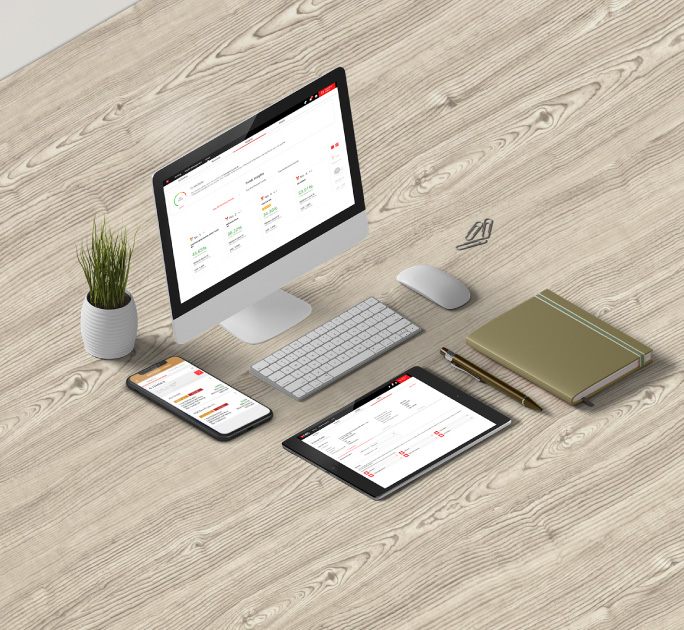Did you know that 81%1 of Supplementary Retirement Scheme (SRS) contributions are already being invested? Meanwhile, the remaining 19% of uninvested SRS funds earn just 0.05% p.a., which is barely a warm-up in the financial gym world. Not to mention maximising your retirement savings.
Key points:
- Tax-deferred gains: Watch your wealth grow tax-free until withdrawal.
- Inflation-beating potential: Give your money a chance to outpace rising costs.
- Diverse investments available: From stocks, unit trusts/ETFs, to single-premium insurance
Sitting on your SRS funds is like paying for a gym membership and never using it. Join the 81%1 of contributions that are actively working out.
SRS in a nutshell
What is Supplementary Retirement Scheme (SRS)?
- Voluntary scheme that complements your CPF savings to maximise your retirement savings.
- Contributions are capped. Singaporeans and permanent residents: Up to S$15,300 a year. Foreigners: Up to S$35,700 a year.
SRS Interest rates
- Uninvested SRS savings earn a 0.05% p.a. deposit rate.
You can invest your SRS savings in a variety of assets and investments: from stocks to single premium insurance. - 100% of your gains go back into your SRS account.
- Investment returns are tax-free before withdrawal.
Impact of SRS contributions on your income tax
- Lowers your taxable income now.
- You’ll get a 50% tax concession on your withdrawal sum when you withdraw the funds at/after your retirement age2.
- If you withdraw your SRS funds before your retirement age2, the entire withdrawn sum will be taxed and you will face a 5% penalty.
Tip: You do not have to liquidate your SRS investments to withdraw them. You can apply to your SRS operator to withdraw an SRS investment by transferring it out of your SRS account (e.g. into your personal Central Depository (CDP) account).
2 Statutory retirement age that was prevailing when you made your first SRS contribution
SRS Statistics
As of 31 December 2024, 81% of SRS contributions have been invested, with the bulk in:
- Unit Trusts
- Insurance
- Shares, REITs, ETFs

Fixed Deposits: Tone up your SRS savings
A simple, effective way to get started is with fixed deposits (FDs), which usually offer higher interest than traditional savings accounts.
Some opt to augment their FD returns by investing in foreign currency FD, which could offer additional returns from exchange rate movements. This strategy can however be a double-edged sword as the foreign currency FD could be worth more (or less) when converted back to Singapore dollars at maturity. This happens because currency rates change.
(Read more: How currency exchange rates affect investments)

Bonds: Steady pace, regular returns on the SRS treadmill
With its relative safety and regular coupons, bonds can help to build up your SRS savings in the long term.
By buying them, you’re lending money to the government or a corporate borrower. That being the case, you’ll know what to expect throughout the duration of your investment.
Types of bond-related investments
Retail bonds3 | Traded on the Singapore Exchange (SGX), typically in minimum trade sizes of 1,000 units. Interest rates are usually fixed. |
Bond unit trusts or exchange traded funds (ETFs) | An investment manager invests your money in bonds for you. Returns may vary. |
Issued by the Singapore government, they can be purchased for as little as S$500. Returns are fixed, increase over time, and can be redeemed without penalty. |
3 via DBS Vickers account
Regardless of which you choose, you’ll be able to get your returns up to speed predictably with regular income.

Unit Trusts and ETFs: Like Personal Trainers for Your Risk Profile
These are quick ways to set up a portfolio that’s managed by expert professionals. Depending on your needs, you can choose one that’s actively-managed (unit trusts) or passively-managed (ETFs that track an index).
Put together by professional fund managers, both offer diversification for relatively small amounts by pooling your money with that of other investors.
With unit trusts (also known as funds), managers select stocks and bonds with the aim of outperforming their benchmark.
ETFs meanwhile buy securities to replicate a specific market index such as Singapore’s Straits Times Index. Hence, their costs are generally lower.

Stocks: Like Powerlifting for Your Portfolio
If you’re prepared to accept more risk, consider stocks.
Buying them lets you own a part of a business. While stock prices will fluctuate, you’ll share in its profits through dividends, and its growth through stock price gains.
Before buying, it’s important to do your research and get proper advice. Check out the stocks’ balance sheet strength, earnings outlook and valuations. Sometimes, undervalued stocks can offer great value.
If you’re considering real estate investment trusts (REITs), look at the quality of the properties under their care as well as the dividend yield.

Single-Premium Insurance: Long-Term Benefits with One Powerful Move
For those who want the assurance of continuing income, a one-time payment into a single-premium insurance endowment policy that is SRS approved could be all that’s needed. You can purchase these using your SRS funds.
How Single Premium Insurance works
Ready to Build Up SRS Savings Strength?
Ready to build your SRS financial strength? Don’t let your SRS account skip leg day. Our Relationship Managers can help you with a customised plan that looks at your SRS savings, investments, and insurance.
Let’s get your SRS savings into peak condition for your dream retirement.
Sources:
1 Ministry of Finance Singapore. Supplementary Retirement Scheme. SRS Statistics. Last updated 16 October 2025.











